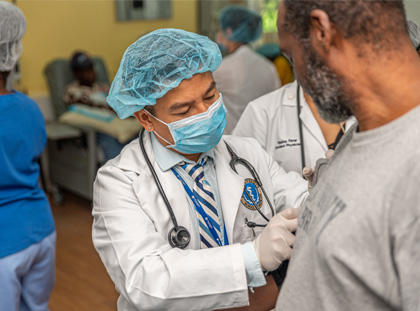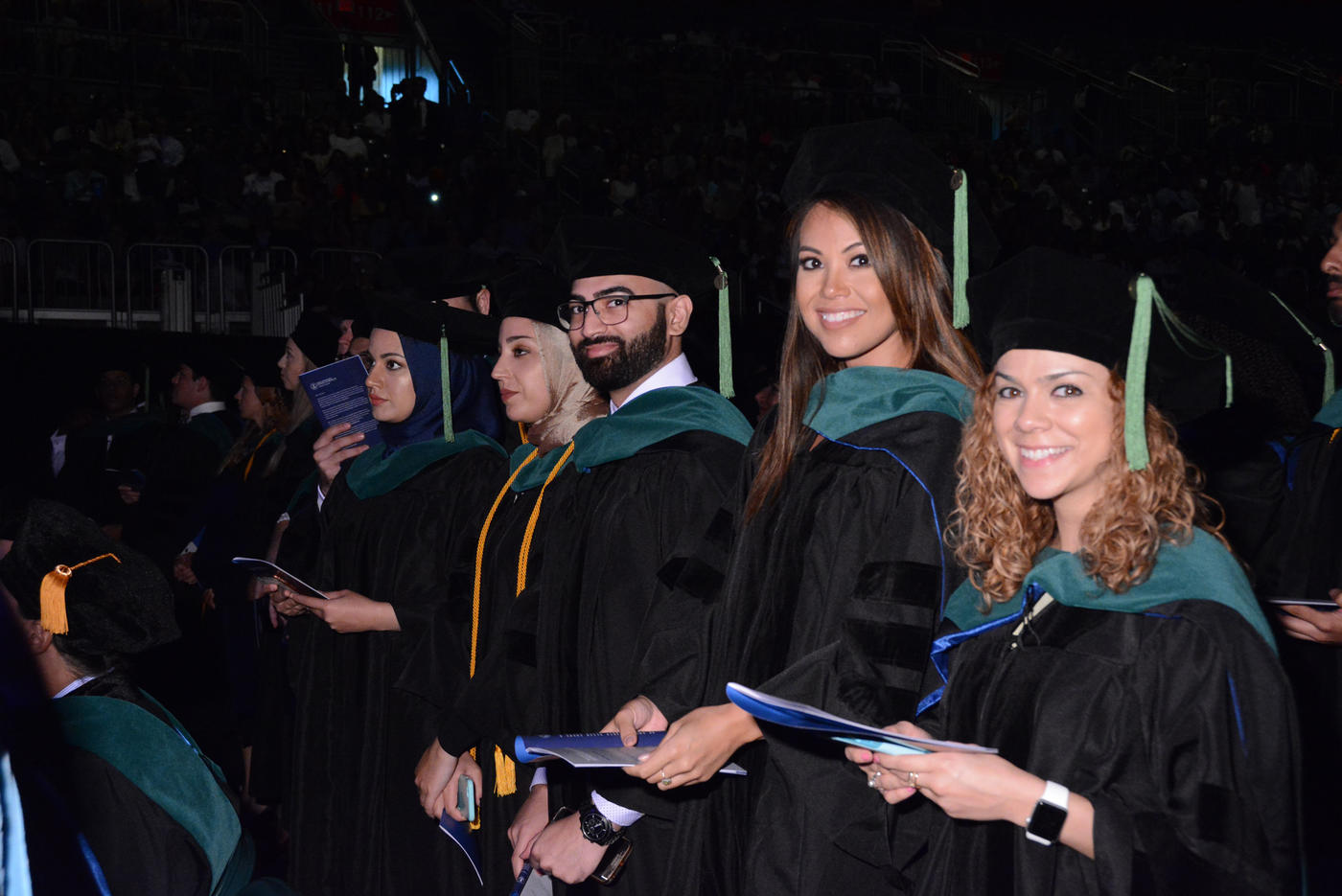For many students, the options may lie among the beautiful Caribbean Islands. There are about 60 medical schools scattered about the Caribbean, but they are not all created equal. To find the best Caribbean medical school—and the best fit—students should find answers to some key questions:
- Is the medical school accredited?
- Does the school provide support and research possibilities?
- What percentage of students pass the first exam for medical licensing?
- What are the options for clinical training?
- What percentage of students move on to medical residencies?
- What percentage of students graduate?
With answers to these questions, students will have a much better understanding of what a Caribbean med school offers—and which may be the best option.
Caribbean Medical School Accreditation
The first thing prospective students should find out is if a Caribbean medical school is accredited—meaning the school meets the functional and structural standards for medical education in their region. They should also make sure that the accreditation meets the standards of the Liaison Committee on Medical Education (LCME), the accreditation authority for medical schools in the United States and Canada that provide Doctor of Medicine (MD) degrees.
Students of accredited Caribbean medical schools—such as the Ross University School of Medicine (RUSM)*—have the same privileges as students of medical schools in the United States and Canada. RUSM students may qualify for federal student loans through the U.S. Department of Education. RUSM students may register with the Educational Commission for Foreign Medical Graduates® (ECFMG®) to begin the United States Medical Licensing Examination® (USMLE®) process. RUSM students may also move on to medical residencies accredited by the Accreditation Council for Graduate Medical Education (ACGME), the residency authority in the United States and Canada.
RUSM, located on the island of Barbados, is accredited by the Caribbean Accreditation Authority for Education in Medicine and other Health Professions (CAAM-HP). CAAM-HP is recognized by the U.S. National Committee on Foreign Medical Education and Accreditation (NCFMEA) as meeting LCME standards. CAAM-HP is also recognized by the World Federation for Medical Education (WFME), the international authority on medical school standards. CAAM-HP accredits more than a dozen medical schools among the member states of the Caribbean Community and in the Dominican Republic. It has accredited RUSM since 2009.
CAAM-HP is not the only medical school accreditation authority in the Caribbean Islands. The Accreditation Commission on Colleges of Medicine (ACCM), which is also recognized by the NCFMEA and the WFME, accredits eight Caribbean medical schools. (To see if a particular Caribbean medical school’s accreditation authority meets U.S. and international standards, check the NCFMEA and WFME approval lists.)
Support and Research at Caribbean Medical Schools
After ensuring proper accreditation, students should learn how a Caribbean medical school supports its students, as well as what research opportunities it offers. Going to medical school is not easy, and students may need academic or clinical training support, as well as help with emotional, social, or physical and mental health issues. They may also need help with housing, balancing family and school obligations, or managing financial aid and residency applications. Schools with less student support tend to see lower graduation rates as well as a generally lower overall student morale.
Student support at RUSM—and some welcome diversion—may come from extracurricular activities and clubs and organizations. Student groups may explore Barbados and participate in dancing, diving, soccer, or equestrian and other activities. There are also organizations specifically for Asian, Black, Canadian, Christian, Indian, Jewish, Latino, LGBTQIA, and Muslim students.
Special interest and teaching assistant groups cover such topics as cardiology, endocrinology, genetics, nephrology, neurology, obstetrics and gynecology, oncology, pathology, pediatrics, psychiatry, radiology, and surgery, as well as emergency, family, internal, lifestyle, and sports medicine. The American Medical Student Association (AMSA) and the American Medical Women's Association (AMWA) help educate and inform RUSM students and connect them with other medical students and professionals around the world.
The Academy of Teaching and Learning (ATL) helps students achieve educational and career goals with faculty and student-centered programs and the Medical Education Research and Scholarship (MERS) program that encourages students to conduct research in all fields of medical education.
RUSM students sharpen their expertise in scientific processes—and strengthen the all-important Medical School Performance Evaluation (MSPE) for residency—through research opportunities in various fields. Every year, RUSM students publish work or present research studies and findings at conferences and meetings around the world, and the annual RUSM Research Day symposium features numerous presentations on particular themes.
USMLE Step 1 Passage Rates
At the end of the first two years of medical school, students take the USMLE Step 1, also known as “The Boards”—the first official test of the medical licensure process. A medical school may measure its success by the success of its students on this first USMLE exam (there are two later tests before licensure), and RUSM students do well.
In 2019, 96.7 percent of RUSM students passed the initial step of the USMLE on the first attempt. It is a good thing that RUSM students do so well on the USMLE Step 1—they must pass it to begin clinical training.
Clinical Training Opportunities
The last two years of medical school usually include the clerkship or the clinical portion of the training. Most clinical training takes place in teaching hospitals. It provides supervised experience working with patients and gives students an idea of which medical specialty appeals to them most. During clinical rotations, medical students are part of a team, led by an attending physician, that includes residents (doctors-in-training) and interns (first-year residents).
For RUSM students, clinical training takes place at hospitals with accredited residency programs in the United States or in the United Kingdom. The 23 RUSM-affiliated hospital programs spread throughout the United States are ACGME- or LCME-approved. The General Medical Council (GMC) accredits the three RUSM-affiliated hospitals in the United Kingdom. Elective rotations may take place at a number of other hospitals, and students interested in a global health career may do parts of their rotations in other countries.
RUSM’s Office of Career Advisement (OCA) provides advice and support to students during the critical clinical rotations as well as during the residency application and matching process. It also prepares students for the second round of the USMLE, which students must pass to earn ECFMG certification and to graduate.
Caribbean Medical School Residency Attainment
An important attribute to be aware of are Caribbean medical school residency attainment rates. In the fourth year of medical school, students apply to residencies and go to residency interviews. Students then create a “rank-order list” of preferred residency programs which is matched against a similar list created by the programs. In late March—on “Match Day”—students learn if they have been matched with an ACGME-accredited residency program to fill post-graduate training positions.
RUSM has a strong history of their Caribbean medical school graduates earning internal medicine or specialty residencies. As of May 14, 2021, 91% of first-time eligible 2020-2021, RUSM graduates earned residencies throughout the United States.
Why Go to a Caribbean Medical School?
Many students choose Caribbean medical schools because they offer opportunities to study medicine to a larger percentage of applicants. They also tend to have a more holistic approach to admissions.
Holistic admission considers an applicant as a whole person rather than a mere set of grades and scores. This approach considers a student’s adaptability, critical judgment, intellectual and social maturity, life experiences, and volunteer work, as well as graduate school performance when applicable.
A holistic approach does not discount grades and test scores, but it does allow for more leniency in academic performance. Students who may have missed the cut on U.S. medical schools—where matriculants have a mean undergraduate grade point average (GPA) of 3.73 (out of 4.0) and an average Medical College Admission Test (MCAT) score of 511.5, according to data from the AAMC—may have a chance at a Caribbean school where the student averages are slightly lower.
What are the Best Caribbean Medical Schools?
So what are the Best Caribbean Medical Schools? Caribbean medical schools that have proved their worth through accreditation, student support, USMLE success, clinical rotations, and high residency placement and graduation rates may consider themselves the cream of the crop. While official Caribbean medical schools ranking is a rather subjective process, the factors and statistics show that RUSM is a great medical school to attend.
The Ross University School of Medicine combines medical science, clinical training, and soft skills support in a state-of-the-art educational environment that keeps learning relevant, contemporary, and competitive. Take the next step toward becoming a physician: apply for admission to RUSM.
Related resources:
*Ross University School of Medicine is accredited by the Caribbean Accreditation Authority for Education in Medicine and other Health Professions (CAAM-HP, www.caam-hp.org).
CAAM-HP is the legally constituted body established in 2003 under the aegis of the Caribbean Community (CARICOM), empowered to determine and prescribe standards and to accredit programs of medical, dental, veterinary and other health professions education on behalf of the contracting parties in CARICOM.
Accreditation by CAAM-HP is a rigorous, peer review process which examines all aspects of a medical program. The CAAM-HP board, an independent and autonomous body of professionals, only certifies medical schools which are operating at the highest levels of industry standards.
Through this accreditation, the CAAM-HP provides assurance to medical students, graduates, the medical profession, healthcare institutions and the public that programs leading to qualifications in medicine meet appropriate national and international standards for educational quality, and that the graduates have a sufficiently complete and valid educational experience.



